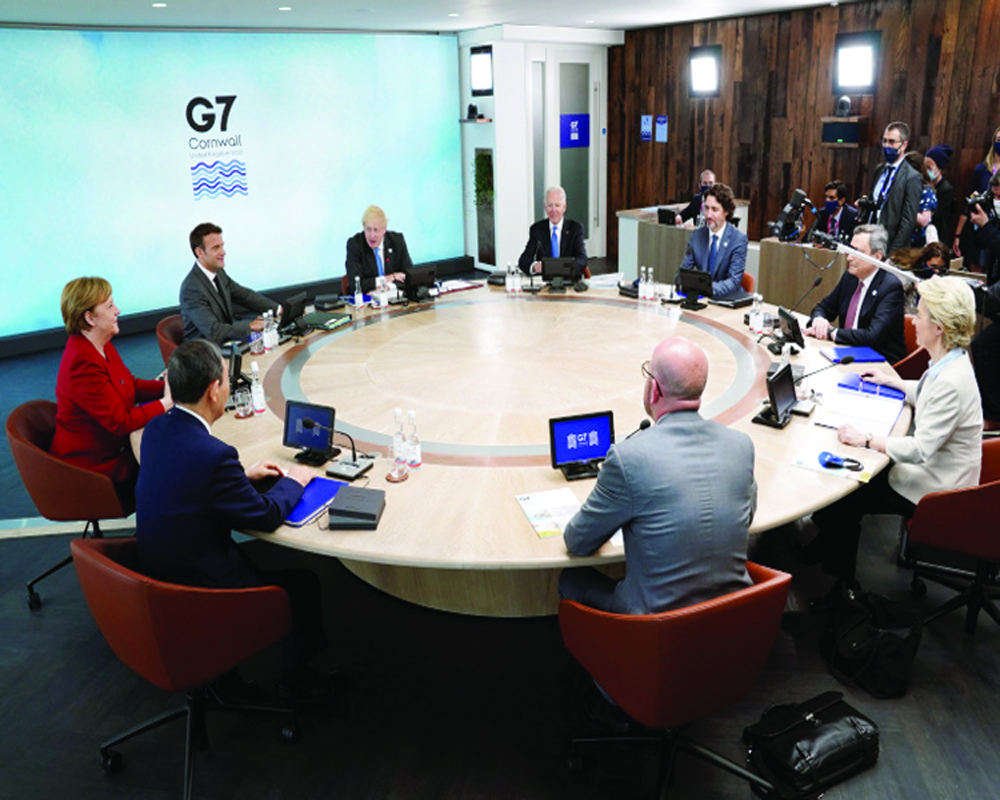How equipped is the grouping to tackle the changing world realities and the new challenges?
The three-day parleys at the G7 Summit in Carbis Bay ended at a positive note even as the world grapples with the Corona pandemic which has far-reaching economic consequences. COVID-19 indeed figured prominently at the G7 meet but the fervour was perhaps missing. The G7 looked desperate to show how united they were. The G7 is an informal grouping of strong economic powers. It unveiled the US-led plans to counter China in infrastructure funding for poorer nations. It also came up with an accord to prevent future pandemics. The G7 leaders said they would offer a “values-driven, high-standard and transparent” partnership. Their “Build Back Better World” (B3W) project is aimed to counter China’s trillion-dollar Belt and Road Initiative. The world realities are changing fast and throwing up new challenges to this elite club which is mostly European and American grouping, after the departure of Russia. The membership of Russia was suspended in 2014 after it annexed Ukraine’s Crimea region. Due to internal divisions, the relevance of G7 is under the scanner.
Moreover, the share of the G7 nations’ GDP is constantly falling. The aggregate GDP of the G7 members has slid to 45 per cent of the global economy from nearly 70 per cent three decades ago. This naturally reduces its hold on the world economy as well as politics. Besides, China has emerged as a big challenger, if not a threat, to the supremacy of the G7. G20 is more potent than the G7 today. For its shrinking clout, the G7 is itself to blame. G7 meets annually to discuss issues of global economic governance, international security and energy policy. Its follow-up on its declarations has been rather lacklustre. Its membership often completely ignores the emerging trends. For instance, it did not take China’s emerging power into consideration and is oblivious to India. It has deep-rooted differences over trade and climate policies. President Joe Biden has pledged to restore the US’ historical commitment to multilateralism. But G7 did not show unity or firmness in Russia’s role in Syria, and Russian interference in the US and European elections. In 2017, divisions emerged within the G7 over a proposal to impose fresh sanctions on Russia. If G7 is to survive as a dominant force, it will have to renew its commitment to democracy and building a world order based on equitable and just world order.


























